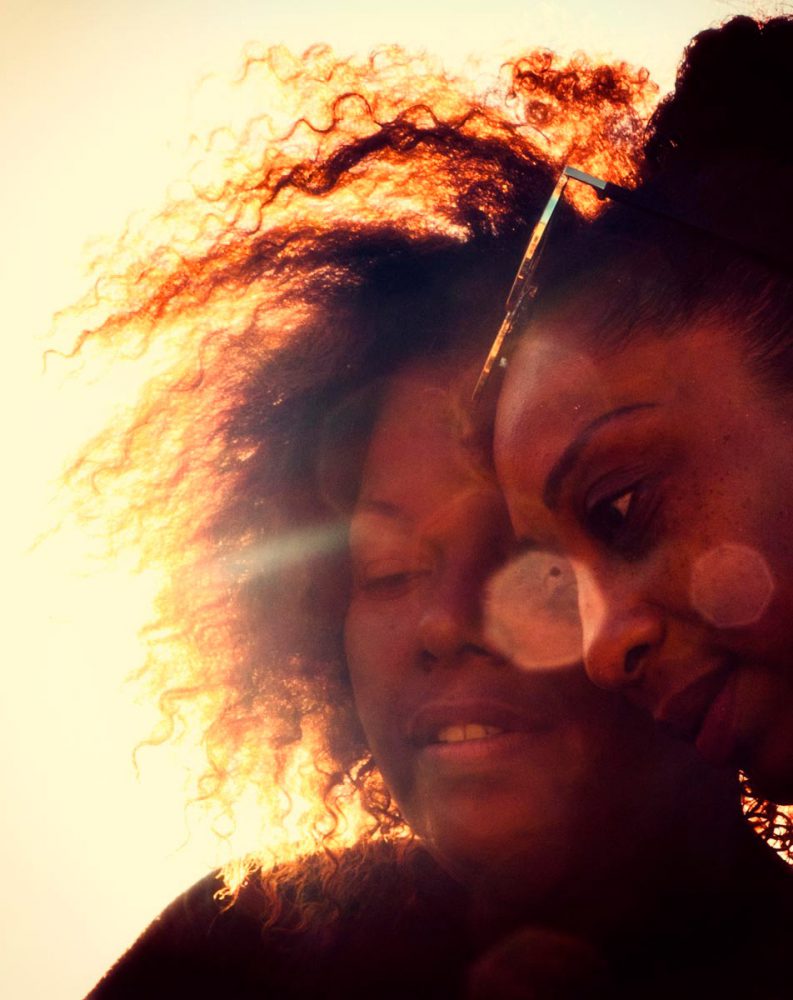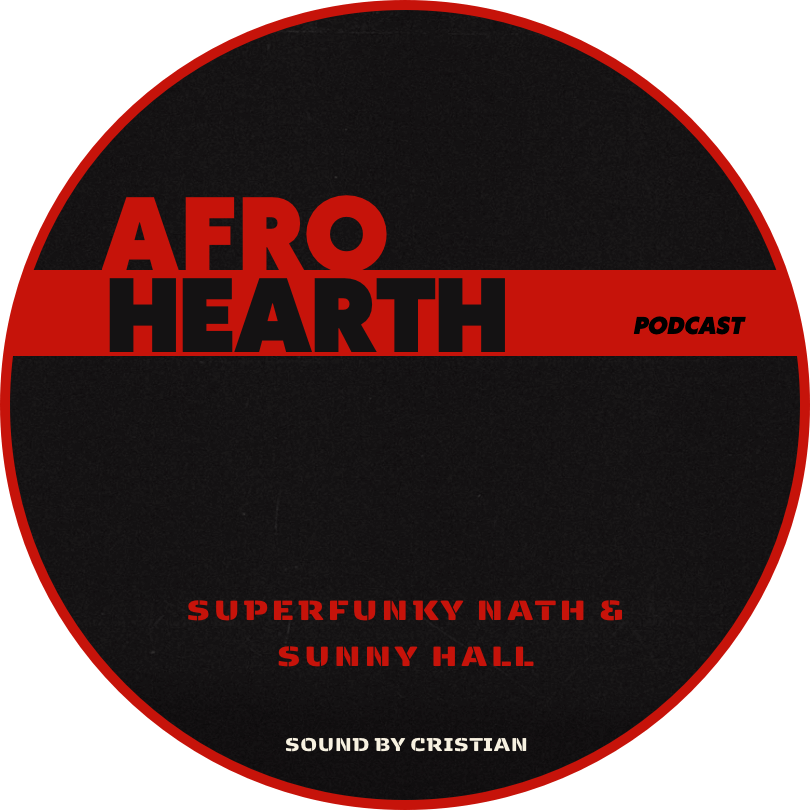
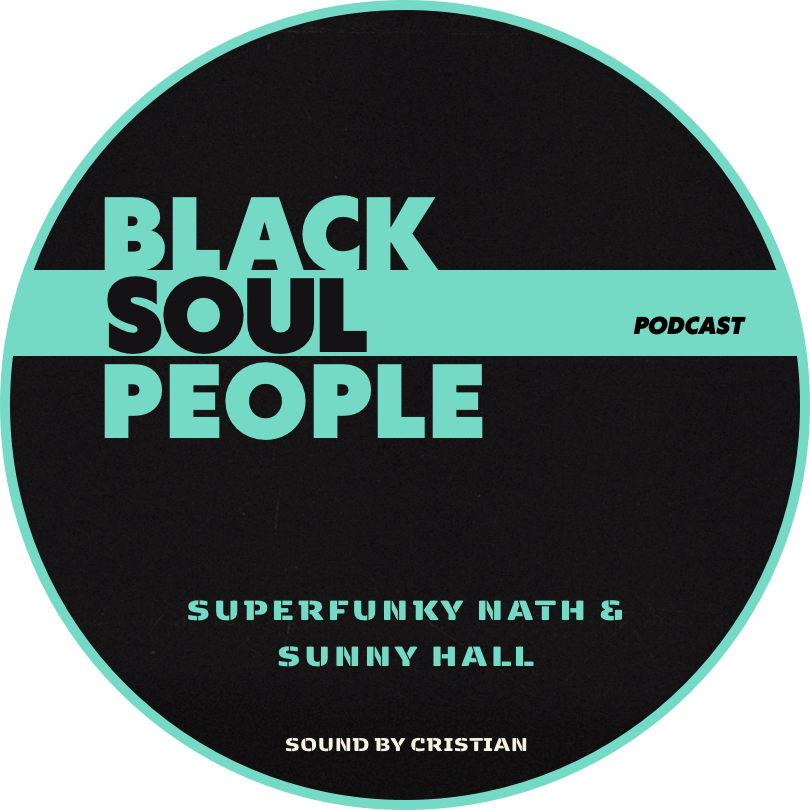
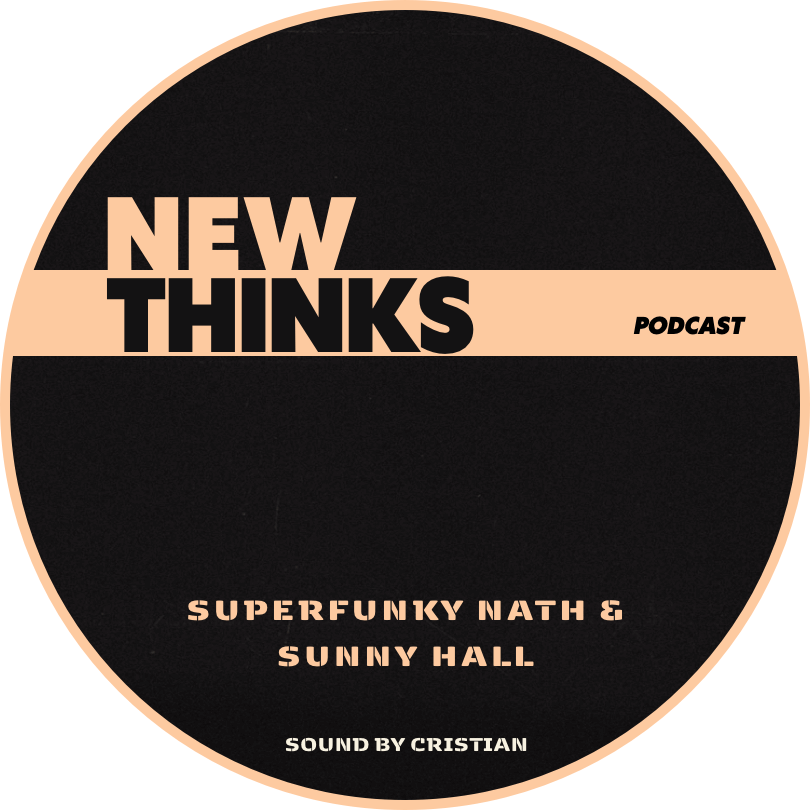
I do not know if I can define a single planet? Because throughout my life, I went through several stages, then I perceived myself in different ways.
If we talk about civil identity, gender identity as a woman, ethnic identity as a non-White person. Today as a Spanish resident, I am a lot more aware of my nationality and especially of my condition as a Black woman. It is not something or a problem that obsesses me 24 hours a day, because I shift between different worlds and I manage to adapt myself, somehow.
Being an expatriate here, I do not have that much of a choice to meet or surround myself with my peers. It is a little complicated here, because I am obliged to redefine my planet and sometimes make concessions while preserving my identity.
Nathalie is a 45 year-old woman who has not found her refuge yet. She lives in Barcelona and it feels good, but at the same time she believes, she would be okay anywhere in the world. Because Nathalie is always on her quest for happiness and well-being.
My definition of a refuge is a place where I feel good, where I seek to find a certain emotional stability and from where I would no longer have the desire to move. Some people give me the impression that they have already found their refuge, and they do not have this need to go elsewhere systematically, and they feel good enough with themselves, to be themselves, to blossom with what they have.
Nathalie is someone who works, who has never encountered any problems in this area of her life, and she enjoys a good progression in her field.
She is a social creature with a lot of friends and takes part in various activities, she travels quite a lot, always in this quest to see what is happening elsewhere.
In summary, Nathalie is an Antillean who comes from a Caribbean family, from Martinique and Guadeloupe. She has stayed in touch with her parents and her sister, and keeps very much alive her important ties with the Caribbean.
My answer is going to be very down-to-earth, I’m in Spain and it was not a particular choice, my company sent me here. Initially, I looked at this destination with rolling eyes wondering what I was going to do there because I did not see any future perspective. After all, I had always wanted to have an experience abroad, so I thought, why not. After 8 years, we can no longer say that it’s for the job, it’s also the easy way for me: I have a job, the weather is nice and I built a little world around me.Today I am here and tomorrow I do not know.
Plain simple, I live leave it at that…
I meet people, I like going to the cinema, travelling, exchanging, but I also like to be with myself, to be alone sometimes. Over the years, I learned to appreciate and adopt this loneliness, and I manage to balance out now when it is imposed and when it is not. When chosen, the solitude is bliss, sometimes I want to be alone now even if I’m surrounded by people.
I work in the field of human resources by choice, so I’m lucky. Coming to Barcelona was part of my personal journey so the job was incidental, nice too because it allowed me to arrive comfortably. The counterpart was to thrive and find moments of happiness on a daily basis.
It’s a journey that starts from childhood, I believe that very early on, we are already aware. You will identify and recognize your difference for the first time in an incident, it is rarely in a positive or enjoyable context. In early childhood, at least in my days, being black was the problem.
I recognize myself and identify as Afro-Caribbean and French personally.
As an Antillean, I went through several stages. During the first phase while I was in the French system, my mentality revolved around the nationality and nothing else. During my teenage years going through the usual bad patch, I defined myself as a Caribbean to realize later, It was not all of me, to finally go back and forth to the initial French identity.
When I started to travel, I had to defend my French identity status constantly because host countries such as Venezuela, Sri Lanka or Turkey, questioned the legitimacy of my identity, systematically. I had to prove who I was with the support of my ID, in any conversation with random people.
The idea that there is a real problem has begun to sprout in my mind, a problem in relation to the fact that people can not identify me as French while I define myself as such.
It was when I started to open my eyes to understand that France exports and promotes the idea of a monochrome country and population, 20 years ago, it was a phenomenon more than blatant. But despite everything, my beliefs about my identity were not shaken while I was acknowledging at the same time, my adoration for the Caribbean culture and the contribution of Africanity to our various cultures.
I must have lived racism consciously and unconsciously. At the same time I did not want it to be an obstacle and be reduced by it, so I chose not to read or theorise on the non-verbal language, I do not feel worse because of it. I remember experiencing two or three mild encounters where they made me understand that they did not want me, and they did not like me because of my skin colour.
At that time, I felt good because I was always surrounded by my community this is the reason why I recognized myself as part of my Afro-Caribbean culture more than the Afropean one.
On the other hand, I am from a generation where all the distinctive marks or pride about Black culture were hidden and silenced. Even in my personal tastes, I was not honest or open. I remember being with White acquaintances whom I shared musical tastes with, and I was not honest enough to say :
I like Hip Hop, R’n’B…
Because I knew what was going to follow behind. Having to hear about ghetto music and scum, etc … I could not admit or speak aloud about a number of things including the type of specific education instilled by my family, because I had assimilated all the stereotypes about Black people.
As I got older, arriving in Spain, a country with no connection with the French-speaking Antilles, I started to free myself from all this weight.
The interesting thing is, here I am a French citizen on paper, so I did not have any question mark which came behind:
“But from where exactly are you from ?”
In France the question was systematic even before they tried to know you and to situate you as an individual.
I have the impression in any case that the White Gaze here is totally different because the so-called French Antilles are not Spanish colonies. Which led me to believe, there is none of the connections to stereotypes and stigmas which commonly exist here with the various Hispanic communities.
At the same time, I started to become interested in social media which made my emancipation as an Afro-Caribbean a little easier. Because finding my community here was very difficult and it is a considerably painful loss even today.
Being able to identify with others and talk about one’s problems is paramount. The people around me, a White majority cannot project themselves or understand the specificity of my Black womanhood, or the issues I have to face because of discrimination and racism. I tried to exchange several times until I said enough, it’s useless. Fortunately, I often go to France to recharge my batteries with friendships of a lifetime. But here, in comparison, it is a deprivation, an absence painfully felt. Social media helped me a lot by watching videos, reading articles and blogs about these topics and especially with emotions I could not explain or verbalise. When I could see women and men talking about the same issues, they intellectualized or conceptualized, I felt understood.
I learned a lot of words, expressions, about racism, about our feelings, this process had a huge impact, a positive one on my general well-being, it helped me to become even stronger to face delicate situations. It also allowed me to distance myself and observe the people who perpetuate these patterns and behaviours in everyday life.
Although I do not think I have suffered any brutal or direct discrimination, I did have one or two frontal altercations here and there, I had to call the police.
There is one permanent situation which is unbearable to me here, it is the association of my Black woman’s body with prostitution on a regular basis, I will even say this is a weekly cycle.
The difference with the French territory is for me more than flagrant. I had never been associated with prostitution or confused for a housekeeper at my workplace before, because it seems that socially, I can only evolve between these two clichés in Barcelona, very international and cosmopolitan, indeed.
On the other hand in my home country, if one moves away from large cities, my racialized body will immediately be the face of delinquency.
The glass ceiling still exists in France, but despite everything, we have come a long way in order for me to reach my current position. Our parents had to fight it first, we were being put through a dry run, also.
I guess this is the paradox, I’m living. Because on one hand when you arrive here, you are reminded of the objectification of the Black body, precariousness and social prejudice, going backward by 30 years.
However, I can not say that I have experienced abusive or racist acts.
In my workplace, my presence holding a position of responsibility for the collective subconscious is difficult to admit and some anecdotes have supported my sensation.
I was able to realize that here the Black woman is completely invisible. Considered as an object. Nobody expects her reaction or emotion.
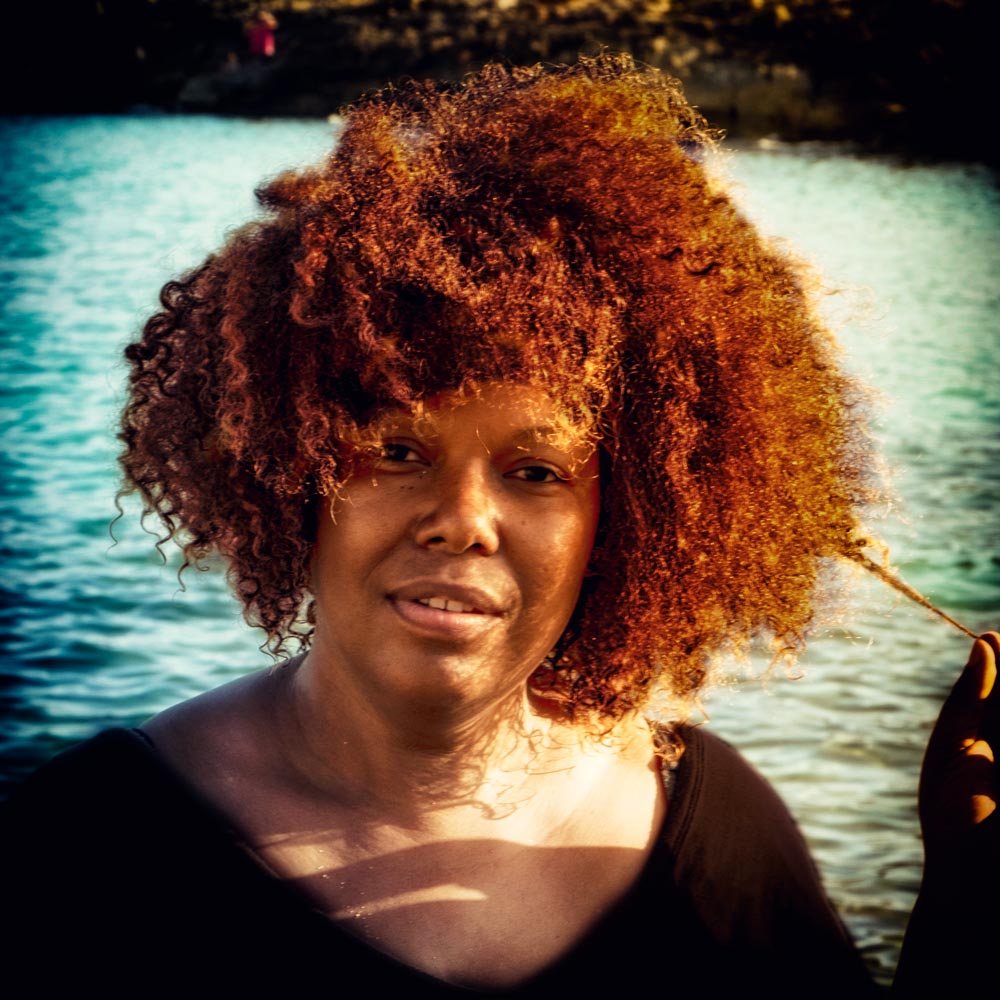
I feel good, even though I have ups and downs, maybe it’s age-related, but I feel better than 20 years ago. I’m not saying that everything is rosy, there are still things to resolve, maybe it’s because I finally get to know myself today. It’s a kind of self-analysis, as if I had the ability to get out of my body envelope and be both the subject and the specialist. To decipher my emotions, applying external guards as well as internal rules for protection.
Above all, it is self-love, this kind of love develops since childhood, it is complementary to self-esteem.
It all depends on how the family passed it on or if it transmitted at all.
There are many forms of love that allow you to build yourself and move forward in life.
I have friends here, my network of close friends is in France. My family, clearly is between France, Martinique and Guadeloupe and England with my sister.
I do not have a proper or personal definition of spirituality. I have always hated everything since my childhood that is related to religion, because of this obsession around the Catholic church. Mentally, I always associated spirituality with religion, which gave me hives.
Very early on, I defined myself as unbeliever. One thing is certain, if we are to talk about spirituality, it is within each one of us. After a while, past the stage of family and community conditioning, one makes his own personal definition.
Whether you like it or not, the problem is not what people think or if they agree with your personal beliefs, people must in any case accept the fact that it is a personal choice.
I have always tended to reject this term and in fact with reading, analysing different scholar or intellectual points of view, I have come to the conclusion that this is not synonymous with religion alone.
It is a search in itself, it is the search for oneself, it is also as I said before to exit from one’s body, to have on one hand the spiritual and on the other the body, so you can analyse everything.
So, I have a laughter that is very marked a good big fat Caribbean laughter.
I admit that I have never tries to hide it and I like the idea that we stop thinking when we laugh.
We are putting yet again the accent on the all Afro-Caribbean atmosphere that I’m missing. I do not know if there is some characteristic we have in common, coming from Africa or the Caribbean, but there is this little je ne sais quoi, that makes the difference and that we find among ourselves.
We excel in self-derision despite a heavy historical past behind us. In our ways of storytelling with a very metaphorical eloquence, very pictorial, when we recognize each other in our anecdotes and stories.
Our various Diasporas have a common point, a point of union in humour.
